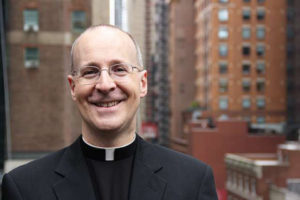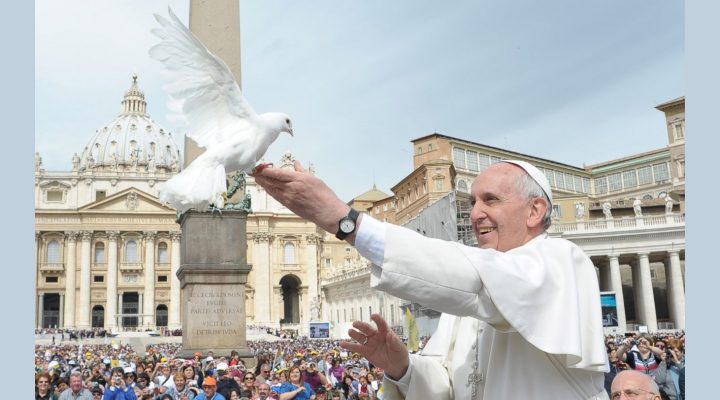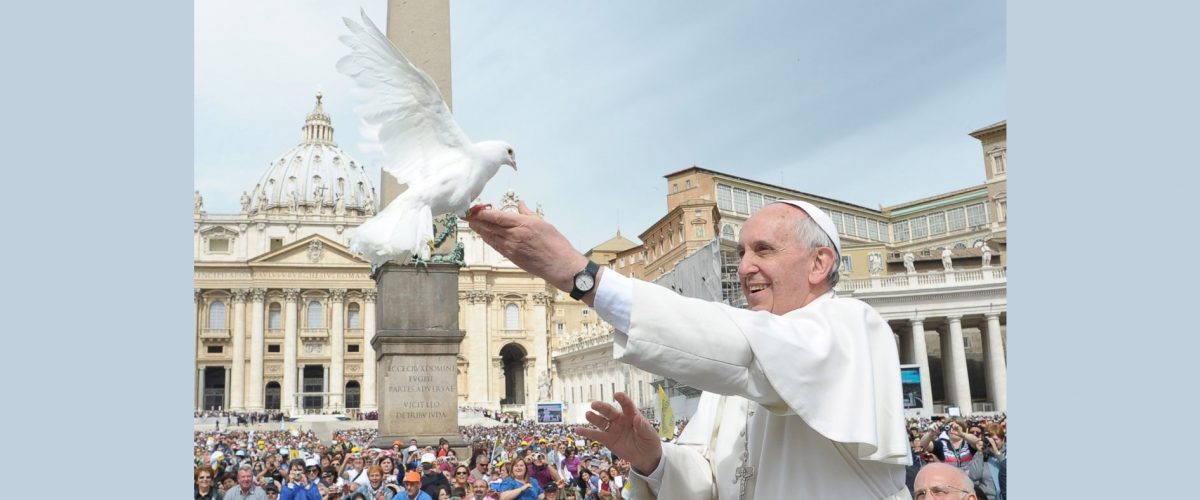This week’s bombshell announcement from the Vatican’s Dicastery for the Doctrine of the Faith that Catholic priests may now use their discretion to bless individuals in same-sex relationships and others in “irregular situations” has sparked intense debate and varied reactions both within and beyond the Roman Catholic Church.
The Vatican’s theological declaration allows priests to offer prayers of blessing on same-sex couples, but not in a liturgical or sacramental context. The Vatican has maintained in the declaration titled Fiducia supplicans that its moral teaching on the sinfulness of homosexuality remains unchanged.
In Catholic tradition, priests are allowed to bless people, places and things apart from more formal liturgical blessings such as wedding vows or the daily mass.
Who’s to blame: Pope or paparazzi?
While some allies of the pope agree with the statement and have vociferously emphasized the church’s unchanged moral teaching, conservatives and progressives alike have found the framing disingenuous.

Ed Morrissey
Ed Morrissey, a political commentator, managing editor of the conservative news and analysis site Hot Air and member of the Catholic faithful, largely blamed the media for the on-going fracas: “What are the most dire words that any Catholic journalist can hear in the mainstream media? ‘Today, the Vatican/Pope Francis said,’” he quipped.
“Some of that can be blamed on the pontiff’s lack of precision and care in his off-the-cuff comment, but not today,” Morrissey continued. “After chewing on the issue of blessing same-sex unions for the last few months, the Vatican issued a new and reasonably clear statement from its Prefect of the Doctrine of Faith … if one bothers to read it.”
Morrissey emphasized the church still forbids homosexuality, cohabitation, premarital sex and the like. While priests cannot offer blessings on the relationships themselves, “what priests can do is offer blessings to the individuals involved in these ‘irregular situations,’ not as a sotto voce approval of sin but as a call to bring them closer to the Lord.”
But in an op-ed for National Review, senior writer Michael Brendan Dougherty criticized the pope as deliberately sowing confusion.
While “the response from the Vatican” to the query of whether priests may “bless same-sex couples or other couples who are married in the eyes of the law, but not those of the church” was technically a “negative,” Doughtery believes the pope has deliberately allowed the misconception to fester in a strategy to “simply change the practice of the church in a way that (makes) it easier to question its theology later.”
Some progressive voices also have echoed the sentiment of conservative analysts that the document does not amount to any meaningful change at present.
Some progressive voices also have echoed the sentiment of conservative analysts that the document does not amount to any meaningful change at present. The Guardian ran an editorial from gay writer Matt Cain with this excoriatingheadline: “So Pope Francis has Deigned to ‘Bless’ Gay Couples? That’s Not a Blessing, It’s an Insult” followed by this subhead: “The Catholic church made my young queer life hell. Now they accept and damn my union in one breath.”
“In the eyes of the Catholic Church, it seems, queer love is still a sin,” Cain wrote. “Well, you can stick your blessing, Pope Francis. It’s a fig leaf, a PR exercise, a means of laundering your prejudice to make it seem like a step towards acceptance.”
A real change … for better or worse
While the Catholic faithful, pundits and analysts sort out who to blame for the immense media fallout over the Vatican’s statement, other voices from both sides of the theological spectrum have argued the document is, in fact, a meaningful change both the Catholic Church’s doctrine and practice.

James Martin
James Martin, a Jesuit priest, editor-at-large of America Magazine: The Jesuit Review, and longtime LGBTQ Catholic ally, said in a statement on the site formerly known as Twitter that the Vatican’s declaration is a “major step forward in the church’s ministry to LGBTQ people and recognizes the deep desire in many Catholic same-sex couples for God’s presence in their loving relationships.”
“In short, yesterday, as a priest, I was forbidden to bless same-sex couples at all. Today, with some limitations, I can.”
Martin then added a follow-up statement: “Be wary of the ‘Nothing has changed’ response to today’s news. It’s a significant change. In short, yesterday, as a priest, I was forbidden to bless same-sex couples at all. Today, with some limitations, I can.”
Other progressives have echoed similar sentiments.
In an interview with The New York Times, Francis DeBernardo, executive director of New Ways Ministry, a Catholic LGBTQ advocacy group, celebrated the declaration: “It really is a landmark and milestone in the church’s relationship with LGBTQ people that can’t be overestimated or overstated. This declaration is proof that church teaching can — and does — change.”
The largely conservative U.S. Conference of Catholic Bishops had a brief and more measured reaction that may even be described as cautious: “The church’s teaching on marriage has not changed, and this declaration affirms that, while also making an effort to accompany people through the imparting of pastoral blessings because each of us needs God’s healing love and mercy in our lives.”
Meanwhile, conservative and traditional Catholics have convulsed with outrage. Steve Jalsevac, cofounder of the traditionalist online Catholic publication LifeSite News,. decried the Vatican’s statement as “a shattering development in church history.”
That same day, in an interview with The Washington Post, Roberto de Mattei, president of the conservative Catholic Lepanto Foundation characterized the pope’s approval of the document as “scandalous and wrong,” noting the declaration would fuel even more resentment among his so-called “radical traditionalist” (or, rad-trad, in internet lingo) opponents.
“This document will chiefly supply munitions to the most radical among Francis opposers,” de Mattei lamented. “A minority convinced that Pope Francis’s words and gestures amount to heresy.”
Those who do not learn from history …
While this controversy is unprecedented among Roman Catholics, those with eyes to see and ears to hear know LGBTQ inclusion has ripped apart numerous ecclesiastical bodies in the Protestant world, chief among these being the United Methodist Church and the Anglican Communion.
In an interview with Reuters, Ulrich L. Lehner, professor of theology at the University of Notre Dame, said the new doctrinal document “invites misunderstanding and will sow confusion” and said he fears it will be “an invitation to schism.”
If recent history is any measure, Lehner’s insights could prove prescient, especially given just months ago the Church of England, another historic ecclesiastical body and mother church of the nearly 110-million member Anglican Communion, saw its General Synod approve trial use liturgies for the blessings of same-sex couples.
Soon thereafter, nearly one dozen Anglican primates from the Global South Fellowship of Anglicans (or GSFA for short) declared they were now in a state of “impaired communion” with the Church of England and the Archbishop of Canterbury — the historic “first among equals” in the Anglican Communion.
These developments within the Anglican Communion came after The Episcopal Church, the member church for the United States, was censured by the global body in 2016 for, among other things, approving same-sex Episcopalian marriage and ordaining individuals in open same-sex relationships. This, however, did not lead to the church stopping its practices. As a response, many conservative Episcopalians left to form what is now known as the Anglican Church in North America. Other conservatives within The Episcopal Church have remained and aligned themselves with other conservative voices in various locations across the Communion, such as the Communion Partners.
While no groups have yet announced impaired communion with the pope just yet, this does not seem altogether impossible.
On the Methodist front, one in four United Methodist Churches in the United States have now disaffiliated over the UMC’s infighting mainly over LGBTQ inclusion. Many of these congregations have left to join the conservative Global Methodist Church, an alternate Methodist body that claims to teach traditional Christian sexual ethics. Like the Anglican Communion, the UMC is a global body with a substantial presence on the African continent. Many commentators have openly speculated that many of these parishes also will disaffiliate.
While no groups have yet announced impaired communion with the pope just yet, this does not seem altogether impossible, especially after Pope Francis recently removed traditionalist bishop and outspoken papal critic Joseph Strickland, who had accused the pope of “undermining the Deposit of Faith.”
At around the same time, Pope Francis disciplined traditionalist Cardinal Raymond Burke for being a source of “disunity” and “using his privileges” (which included a salary and subsidized Vatican apartment) against the church. This was more likely than not an allusion to Burke’s widely covered comments that the papal-initiated Synod on Synodality, which covered topics ranging from women serving in holy orders and LGBTQ life in the church, would create “confusion and error and their fruit — indeed schism.”
In an interview with Baptist News Global, a bishop with an affiliation with a traditionalist group within the Anglican Communion (who asked not to be identified) expressed astonishment at the Vatican’s latest theological declaration. “It’s astonishing to see even the pope apostatizing on this issue,” the bishop said. He added he believed Catholics needed to learn from the mistakes of their Anglican counterparts, noting the current crisis in the Anglican Communion over gay marriage started with blessings.
Related articles:
What did Pope Francis say, and what did he mean, in AP interview on homosexuality? | Analysis by Mallory Challis
Pope Francis practices Orwellian doublethink | Opinion by Russ Dean
She was the only Baptist and only woman fraternal delegate at a Vatican synod


